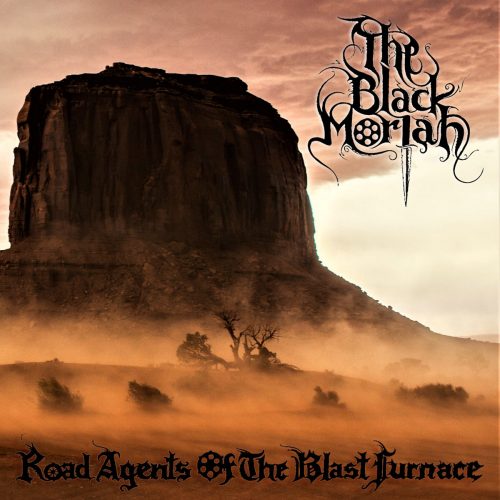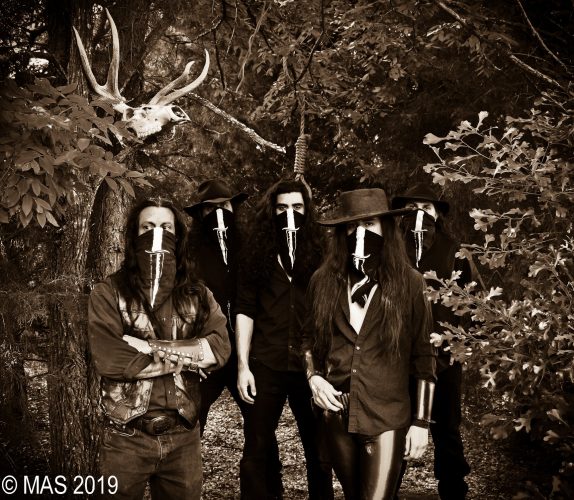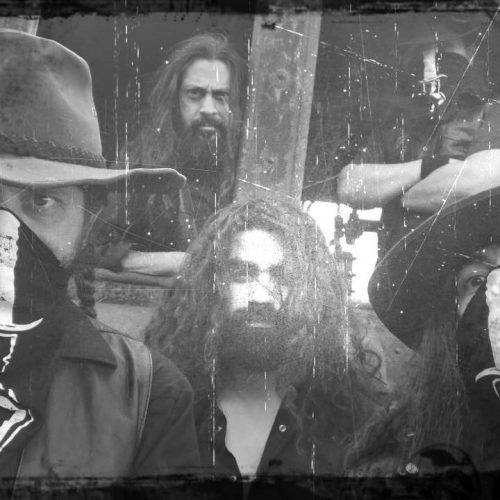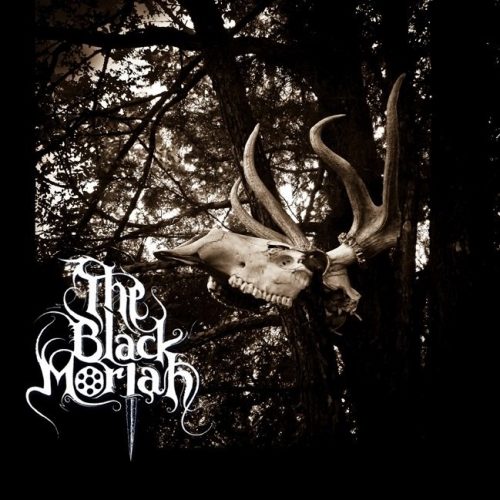Before finding an interview that confirmed my suspicions about the meaning of this band’s name, I engaged in some internet research. The results of much of my searching directed me to “the black maria“, despite the difference in spelling. “The black maria” was the colloquial name for horse-drawn police wagons, with the term’s origins dating back to the mid-1800s in New York City. It was pronounced in the same way as “the black moriah”. Other searches pointed me to Moriah, the Hebrew name for the mountain where, according to the Book of Genesis, God told Abraham to take his son Isaac and sacrifice him. But none of those references is correct.
Searching more thoroughly would lead you to tales of Tombstone, Arizona, a silver-mining boomtown that became emblematic of the lawlessness and violence of the Old West in the 1800s, most famously the site of The Gunfight at the O.K. Corral and of the Boothill Graveyard, so named because most of the men buried there had “died with their boots on”. “The Black Moriah” was the name of the horse-drawn hearse that took many of those men to their final resting place on Boothill. The actual hearse is now housed in Tombstone’s Bird Cage Theater Museum, which was itself the site of an infamous brothel in those old lawless days.
And that horse-drawn hearse from Tombstone is in fact the source of the moniker for this North Texas band, who have embraced what old Tombstone came to stand for. Portraying themselves as a “horde of highwaymen”, they create “blackened thrash for a desert funeral”. The title of their latest album, Road Agents of the Blast Furnace, could serve as an alternate name for the band, because they do indeed sound like outlaws riding the wild roads of a sun-blistered land on horses from hell.
This isn’t my first encounter with The Black Moriah. Seven and a half years ago I reviewed their first demo, Casket Prospects, which was also the name of their debut album released later that same year (2012). I learned then that the band was created by ex-Absu guitarist Zawicizuz, who to this day writes most of the music and performs some of the vocals, and lead vocalist/lyricist The Mad Arab (both of them have also been members of Bleed the Sun, and have been involved in other projects as well). Various session musicians and live performers have joined them, but it’s these two who were responsible for Road Agents of the Blast Furnace, which was released by Folter Records in March of this year.
I meant to write about the album much, much earlier than I have. I was reminded of my oversight when my friend Andy delivered his review of the new album by Bushwhacker (posted yesterday), another band who’ve incorporated themes of the Old West into their music (though in the case of their new album they’ve used them to create a fantasy universe of their own, which also involves Egyptian mythology). And so, after listening to Road Agents of the Blast Furnace again after many months, I’ll offer these thoughts, along with a stream of the album.
My own roots in Texas and a year spent in Arizona may have predisposed me to like this music, along with an affinity for Absu and for the other influences that contributed to this band’s formation — the likes of Bathory, Kreator, Motörhead, Slayer, and Venom. Through the weaponry of blazing thrash riffs, riotous drumming, fleet bass lines, and caustic blackened shrieking, they very effectively create visions of blazing gun battles, vicious knife fights, bawdy bordellos, poisonous booze, and the ever-presence of death in a heat-stricken land.
From the jittery racing riff, the pneumatic drum battering, and the blaring chords that launch the opening title track, The Black Moriah take us on a blood-pumping thrill-ride. The music is usually a scorching, full-throttle rush that’s so wild and ebullient you can’t help but be caught up by its electrifying energy and carried away by the vicious joy that courses through all the romping and rampaging.
And yes, it is vicious, thanks mainly to the unhinged quality of The Mad Arab‘s snarls and screams, as well as the sensations of cruelty that sometimes come through in Zawicizuz‘s maniacal riffing. There’s also a dismal and doomed feeling that occasionally comes through (in the openings of “Say It With Bullets” and “Death Valley Days”, and in the oppressive, dragging close of “Elixir of Wrath”, for example). But the dominant sensation of the songs (especially in the album’s first half) is one of glorious exultation. The fretwork is torrentially fast; the soloing strikes like a flamethrower; the leads are swirling and crazed; and the bursting fanfares of melody are uproarious.
Perhaps needless to say, given what you’ve already read, Zawicizuz is a top-shelf riff machine, capable of cranking out one high-octane and highly addictive sequence after another. And the band do a decent job of switching up the drum rhythms (which usually go just as fast as everything else) in a way that adds to the interest of the music.
There’s not much room to breathe from start to finish, and not much variation in the racing tempos. Yet I didn’t find my attention wandering, sunk in a malaise of “sameness”. I think that’s due in part to how explosively energetic and well-executed the songs are, but also because of the variations in the core melodies from song to song. The break provided by the ominous and eerie “Palaver” interlude and its surging symphonic overlays, followed by the sinister, freakish delirium of “Elixir of Wrath”, also helped.
In fact, all of the songs in the album’s second half following that foreboding interlude tend to be even more variable in their moods than those in the first half. At times, they seem to take us into more occult and hostile territory. There’s a luciferian kind of majesty that rears its head in the slower movements of “Scholar of Tongues” (which also channels a mood of deranged violence); the tremolo’d chords, shattering screams, and bombastic drum eruptions in “Just A Taste” create a feeling of hallucinatory madness; and lunacy is rampant in “Twisted Axe” as well.
When “Ratwater” rolls around to close the album, it’s with a slow, haunting, flesh-chilling refrain, steeped in moodiness. Of course, the band do eventually step on the gas pedal to deliver one last savage burst of guitar mania, hellish vocal expulsions, and battering, tumbling drumwork, before the band return to that uneasy but beguiling sequence that opened the song, to bring the album to a close, and perhaps to serve as a reminder that death in these barren lands was eventually the lord of all.
A great record, in my humble estimation, and one that’s well worth staying with from beginning to end, to discover through the songs after “Palaver” just how multi-faceted these road agents of the blast furnace can become when they set their minds to it.
BANDCAMP:
https://theblackmoriah.bandcamp.com/
OFFICIAL SITE:
http://www.theblackmoriah.com
FACEBOOK:
https://www.facebook.com/TheBlackMoriah/





It is often melted quite well together with intensity and energy, and when the parts stand alone, it is also quite good. The songs are well crafted and the music is delivered quite well. This is by far not a groundbreaking album, though a solid piece thrashy darkness with power and intensity, with a dusty nostalgic feel to it.
Great stuff. I hear some Absu in this.